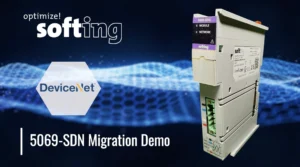3M Brings Innovation to the Manufacturing Supply Chain Environment
Exciting insights from Carl Doeksen, Global Robotics and Automation Director at 3M, on the changing landscape of robotics and automation.
“Automation is the key to staying competitive in the B2B landscape. By fostering a culture of innovation, collaborating closely with customers, and leveraging diverse expertise, businesses can position themselves as leaders in their respective industries.”
Understanding the Evolving Industry Landscape: Carl Doeksen kickstarted the conversation by emphasizing the role of 3M as an industrial company, known for its extensive range of industrial products, including tape, adhesives, and abrasives. With over 240 factories worldwide, 3M has developed a deep understanding of the manufacturing supply chain environment, propelling their foray into the automation space.
The Rise of Automation and Industry Collaboration: Automation gained significant traction in the past few years, as industrial customers approached 3M seeking solutions to replace manual and hazardous grinding processes with robotics. In response, 3M developed a vast ecosystem of industry partners to address customer needs, leveraging their expertise in programming, automation, and mechatronics. Technological breakthroughs, such as the declining cost of industrial robots and vision systems, have also played a crucial role in fueling this growth.
Active Compliant Force Control and Future Prospects: Carl highlighted active compliant force control as a critical technology in material removal applications, enabling robots to mimic human operators’ abilities. This technology, along with advancements in end effectors and vision systems, has made automation more accessible and efficient. Looking ahead, Carl predicts a growing interest in automation among small to medium-sized businesses, often overlooked in the past. By embracing fast setup, high mix, and low-volume applications, these businesses can enhance productivity and gain a competitive edge.
Emphasizing Safety, Quality, and Brand Image: During the discussion, Carl emphasized the need for a shift in focus within the automation industry. While productivity and cost savings are essential, safety and quality should take precedence. By leading with safety and quality, businesses can create a virtuous cycle that engages employees and enhances brand reputation. Carl further highlighted the importance of integrating automation and robotics into a company’s brand image, with consumer preferences evolving to value products made with advanced technologies.
Support for Small to Medium-Sized Businesses: Addressing the misconception that smaller businesses lack the capital for automation, Carl highlighted that many of these businesses already invest in expensive equipment, such as laser cutters and CNC routers. However, challenges arise in programming and utilizing robots effectively. To overcome this, Carl recommended exploring partnerships with companies like 3M or venturing into low-code or no-code automation solutions. Additionally, the availability of Robot as a Service (RaaS) models allows businesses to trial automation solutions without substantial upfront costs. Check out GrayMatter Robotics for more information there.
Conclusion: As the robotics and automation industry continues to evolve, Carl Doeksen’s insights shed light on the potential for small to medium-sized businesses to adopt automation and drive productivity. The convergence of affordable technology, active compliant force control, and an increasing interest in safety and quality opens up new avenues for growth. By embracing automation, businesses can enhance their brand image, improve product consistency, and drive long-term success in an ever-evolving market. As leaders in the industry, 3M’s dedication to innovation and collaboration paves the way for a future where automation becomes accessible to all.









